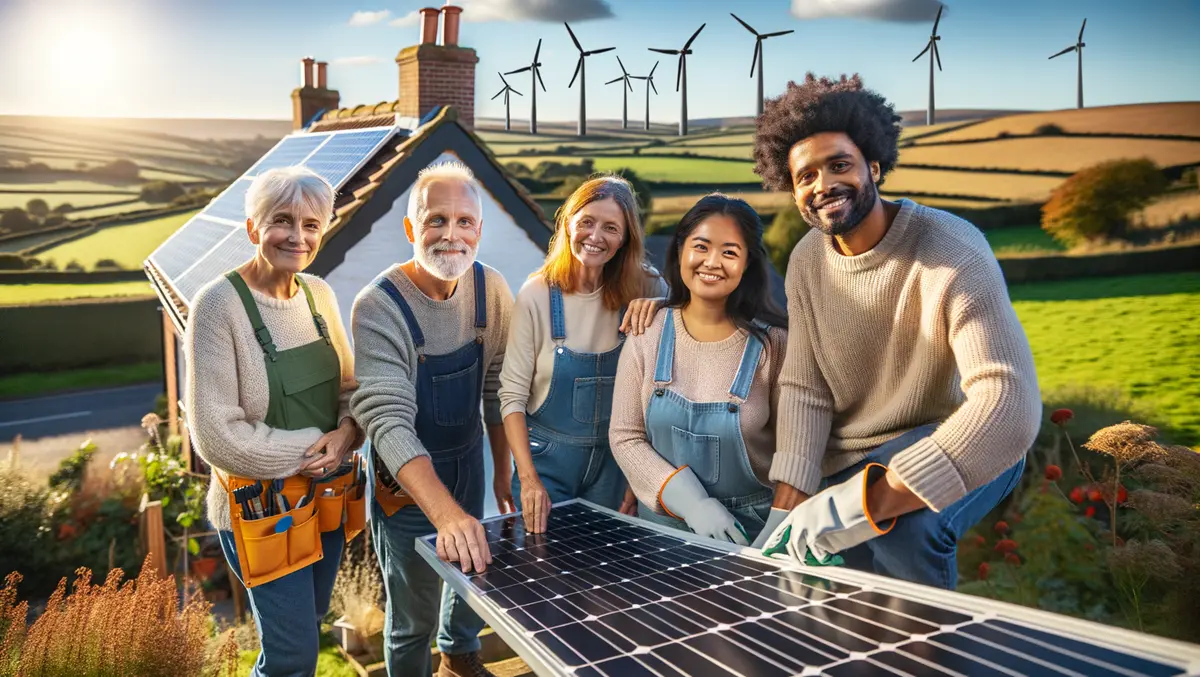
Over 50s in Britain lead in embracing renewable energy
New research conducted by Solar Together has uncovered a remarkable trend among older generations in Britain. It reveals that nearly half, or 44%, of Britons over the age of 50 are expressing a desire to become more self-sufficient, with environmental factors underpinning this ambition. This age group is specifically emphasizing the importance of renewable energy sources for their homes as part of their green initiatives.
This study discovered that the green drive among the over 50s demographic outpaces that of younger generations, specifically those aged 25 and under. While 34% of this group demonstrated an understanding of or interest in environmental initiatives such as growing food at home and disconnecting from the grid, the over 50s group significantly surpassed this with a full 10% more interest.
The gap in interest between these age groups demonstrates that climate change awareness is not isolated to the younger demographic. Many of the younger generation perceive climate change as a potential threat to their life opportunities, and yet it would appear that it is the older generation that is making more sustainable adjustments.
A broader general study conducted by Solar Together supports this claim, noting key trends among the greenest locales in the country. The English county of Devon and the city of Chichester have both high proportions of an aged population and green households. This stark correlation reinforces the notion that a socially conscious mindset might be just as prevalent or even more so among older generations.
Additional studies endorse these observations, revealing that three-quarters of Britons over the age of 50 are concerned about the implications of climate change on future generations, with the over 70s constituting the most concerned age group. The over 65 age group was more than twice as likely to undertake eco-friendly measures, such as saving wastewater and shopping locally.
Adam Parvez, Behavioural Science Specialist, articulated these concerns and offered a detailed perspective on this shift in environmental responsibility. He stated, "We are in the midst of a climate emergency. As a result, Brits are now not only taking steps to reduce their own environmental footprint – but are also looking to ensure the world is left in a better environmental state for the next generation."
Parvez further noted that, "In our conversations across the country, we've seen a notable shift in the last couple of years in Brits' motivations for installing solar panels. While five or six years ago, most people only talked about wanting to save money on their energy bills, or become a bit more independent from the grid - we now see more people, particularly older people, talk about wanting to 'do the right thing' and wanting to leave a better world for their children and grandchildren."
Solar Together is one such initiative aimed to aid households in integrating renewable energy in a cost-effective manner. To date, they report over 31,700 solar panel installations through the scheme, projected to eliminate over 647,000 tonnes of carbon emissions over the next quarter of a century, intensifying the fight against damaging climate change.


